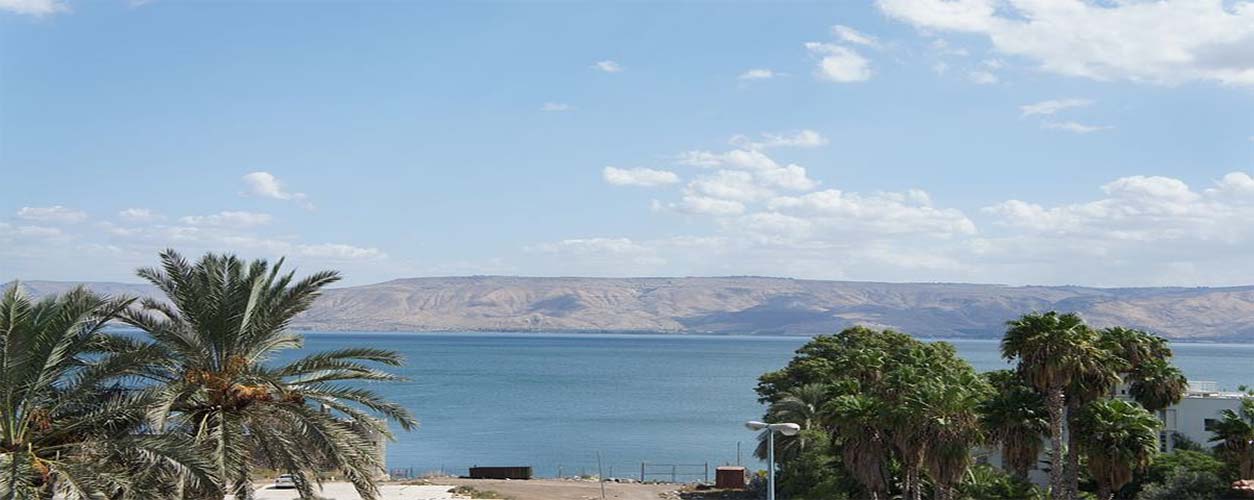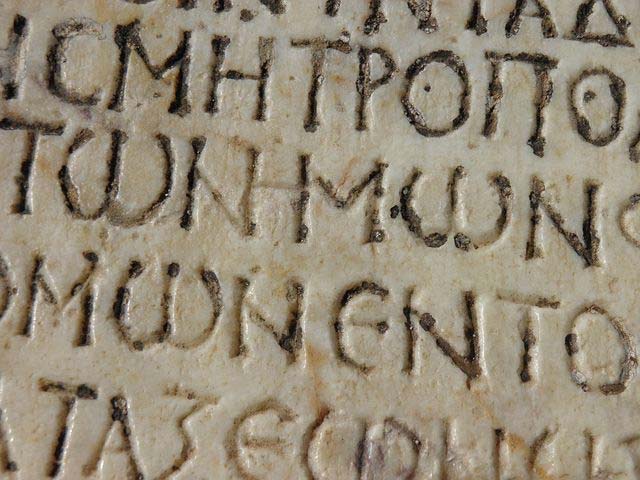Scroll down to see and play Audio.

Good morning my “Walking with Jesus” friends, welcome to the weekend edition of “Walking with Jesus”.
Our study today, in God’s Word, is one of the passages which led me to the title “Walking with Jesus” for our journey together. We’re in John 21. We’ve been with 7 disciples on Lake Galilee. After fishing all night and catching nothing, a lone figure on the beach, in the dim, early, dawn light called out to us and urged us to drop the net on the right side of the boat, right where we were. We did, and the next thing we knew, the net was pulling down deeper into the water, filled with a huge catch of fish!
John claimed the person on the shoreline is the resurrected Jesus! Peter jumped into the water and started swimming ashore to Him. The rest of us struggled with the net full of fish, and also tried to row our boat toward shore.
We’ve now come ashore, and to our amazement, it IS the resurrected Jesus, and He has breakfast cooking on the beach for us! So let’s pick up this remarkable experience in John 21:13 “Jesus came, took the bread and gave it to them, and did the same with the fish.” Breakfast, fresh cooked by resurrected Jesus, at sunrise, and served to us by Jesus, who has a smile on His face! It just doesn’t get any better than this, does it my friends?

Do you see in verse 14 that John made note “This was now the third time Jesus appeared to His disciples after He was raised from the dead.” Do you remember the first two times? Resurrection Sunday evening (John 20:19-23 & Luke 24:33-47) and then one week later when Thomas was with them (John 20:24-31). But several days have passed since then, and when we last saw Jesus in that locked room in Jerusalem, He didn’t give us any hint of when we’d see Him again! Oh my it sure is wonderful to be sitting on the beach eating breakfast with Him. It’s hard to take our eyes off Him isn’t it? Can you put yourself there my friends?
So as we sit around the fire, eating food the resurrected Jesus has cooked and served us, what are you thinking, what are you feeling? John doesn’t tell us what Jesus and His friends talked about, but I can imagine they had many questions and because they had no idea if they’d ever see Him again, they asked and He answered. I suspect that breakfast lasted a long time. The fire may have long since burned out when Jesus finally turned to Simon Peter and spoke words that changed his life. Let’s listen closely, because these words have impacted people all around the world in the past 2000 years.
But first, it’s important to understand there were many languages spoken all across the Roman Empire in those days in the first century. And as far as we know English, French, Spanish, Russian, Mandarin and even Haitian Creole were not among them! In Acts 2:8-11 we have a picture of the variety of these first century languages spoken in that region. But there was one language used all across the Roman Empire, both for writing and speaking, which everyone would understand… Greek. So, John wrote his story of Jesus in Greek, so all could understand.

Whatever language your Bible is written in, it is a translation from John’s Greek, and aren’t you glad some wise people took the time to painstakingly translate John’s account, so we have it in several hundred languages today? In each of our own languages! The reason I point this out is that if you are reading an English language Bible, you’ll see Jesus asks Peter three questions, and Jesus uses the word “love” in all three. Sadly, we have no real way in English of truly understanding what Jesus was saying because English has only one word for ‘love’. But did you know the Greek language, in which John wrote, had at least 8 words for what we call ‘love’? That’s right, 8! May I give them to you briefly:
EROS… this is passion, lust and pleasure. The Greeks felt this could be a dangerous type of love that might move someone to even ‘lose control’ of themselves and do evil things, driven by their lust. Do you see the word ‘erotic’ comes from that?
PHILIA… this is affectionate love, a strong friendship. It’s seen in good friendships that withstand separation of time or distance. Can you see it in the word “Philadelphia”?
AGAPE… this is selfless, deep love. This is what Jesus was talking about in John 13:34,35 when He said “As I have loved you, so you must love one another. They will know you are My disciples, if you (agape love) one another.” It is unconditional, a boundless compassion, an infinite empathy extended to anyone.
STORGE… this is the strong type of love seen among family members or even in battle as soldiers risk their lives to save a fellow soldier.
MANIA… this is a dangerous love that happens when affection turns to obsession. Can you see the word “maniac”, meaning out of control, comes from this word?
LUDUS… this is a playful love, like watching little children or even a litter of puppies playing. It can be the fun and brief enjoyment people have at a concert or a ballgame where they are together for a short while and don’t really know each other well, but are enjoying a common experience. It can also mean the attraction of a budding romantic relationship.
PRAGMA… this is the type of love often found in the elderly, especially a widow & widower who come together in their old age as companions. Or a mature love of a couple married 60 years or more. Or even a committed partnership that compromises and serves for the mutual benefit of each other. Do you see the word “pragmatic” here?
PHILAUTIA… this is the love of self. When healthy, this is how you feel about yourself when you are content. When this is an unhealthy self-love, it is boastful, prideful and even narcissistic.
That’s really interesting isn’t it my friends? So, let’s rejoin the resurrected Jesus and the disciples on the beach, around the breakfast embers. John writes: “When they had finished eating, Jesus said to Simon Peter, ‘Simon son of John, do you truly love (Agape) Me more than these?” (John 21:15) Did you noticed Jesus did not call him Peter, but rather ‘Simon son of John’. Jesus was careful about His use of words. These were the very first words Jesus had spoken to Peter when they had first met, remember?

Andrew had brought his brother to meet Jesus, and Jesus said “You are Simon son of John. You will be called Cephas.” (John 1:42) John added this explanation for us: “which when translated is Peter”. So why do you think the resurrected Jesus used Simon’s original name here on the beach that morning? They’d known each other for several months?
Do you suppose Jesus was taking Peter back to the beginning of their relationship, and with His questions that morning would lead them both to a new relationship? A relationship that would overcome the regret and shame Peter still carried when he thought of the 3 times he denied Jesus on that Thursday night after their upper room meal and only hours before His crucifixion?
And when Jesus used the comparison ‘more than these’ in his question, who or what do you suppose Jesus was comparing Peter’s love with? Could Jesus have pointed at the other disciples, asking Peter to think about how his relationship with Jesus compared with theirs? Or could Jesus have pointed at the net full of 153 flapping fish? It was Peter’s vocation and that which he loved the most. Or, might Jesus have pointed at the towns on the shoreline of the lake, meaning the familiar places to Peter, and the people who had been in the crowds when they gathered around Jesus expecting a miracle?
Let’s personalize it my friends. Let Jesus ask you and me the same question today. How does your relationship with Jesus compare with the other important relationships in your life? Your family, your favorite sports teams, your friends, your vocation, your hobbies, your investments, your trophies, your books, your TV or movies, your internet favorite sites, even your favorite places. Honestly now, can you truly assess how you would compare the relationship you currently have with Jesus, with all other relationships in your life. . .and are you satisfied with that? The more important question is this: Is Jesus satisfied with that?
Peter, I believe, was stunned by the question. If there had been other conversation going on among the other men, I imagined everyone got quiet and all looked right at Peter. What would he say? Can you see Peter looking around at the fish, the towns, the lake, the other disciples, and finally Jesus… “Yes, Lord, You know that I love (Philia) You.” (John 21:15)
Friends, I wish I knew the tone of voice and the look on Peter’s face when he responded to Jesus. What do you think it was like in that moment?
Now do you see why I’ve given you the different explanations of the word love which John used when he wrote his description of this ‘defining moment’? Take a second and look back in my notes to see the difference between Agape love and Philia love. What do you see? Peter was being careful. Oh he desperately wanted to respond with confident Agape love, but he knew himself, and he never wanted to be haunted by the regret of denial again, ever.
Notice please Jesus’ response to Peter… “Jesus said, ‘Feed My lambs.'” Peter was a fisherman, not a shepherd. But sheep and shepherds were abundant throughout Israel and especially in the rich green meadows of the Galilee. Immediately Peter would have had pictures come to his mind of how he’d watched shepherds care for newborn lambs. These frisky little lambs were very vulnerable and often scampered off away from their mothers and got lost. The good shepherd was always on the watch for wandering lambs. Many times a good shepherd could be seen with a lamb slung over his shoulder, bringing it back to the flock.

These playful little lambs were also oblivious to danger and were very easy prey for attack animals like wolves. They were defenseless. The good shepherd was always on the watch, ready to defend the lamb, especially when it was panicked in fear. And finally, young lambs often needed help discerning what was good food was and what it wasn’t. They’d eat almost anything until they developed a discerning appetite for lush green grass. So what do you suppose, my friends, Jesus was inviting Peter to do with the people who were like young, vulnerable, spiritual lambs in their relationship with Jesus?
By the way I’ve put a link for those 8 meanings of love at the end of my notes.
Now I can see I’ve run out of time, so I suggest let’s pause here, on the beach with Jesus and 7 of His disciples, and I’ll pick it up in vs. 16 tomorrow, OK? Meanwhile, may I urge you to spend some time with Jesus, letting Him ask you the very same question… and why don’t you and Jesus have a long and honest conversation about it? What’s really down deep in the affections of your heart?
Oh Lord Jesus, thank you so much for the power of this breakfast story on the beach. Please help us personalize the conversation and by the power of Your Holy Spirit, would you Jesus, help us see the truth deep within each of us, about our relationship with You?
Attachment: https://greekcitytimes.com/2020/02/14/the-8-ancient-greek-words-for-love/
Bible images provided with attribution to www.LumoProject.com.
Have a comment or question about today’s chapter? I’m ready to hear from you, contact me here.
 Pastor Doug Anderson 262.441.8785
Pastor Doug Anderson 262.441.8785
“Let us run with perseverance the race marked out for us, with our eyes fixed on Jesus…” (Heb. 12:1,2)
Archived back issues of “Walking with Jesus” and other resources are available by clicking here to open our ‘home page’ (or go to HOME at upper right of this page).
Share with friends. Subscribe below for daily “Walking with Jesus”.

